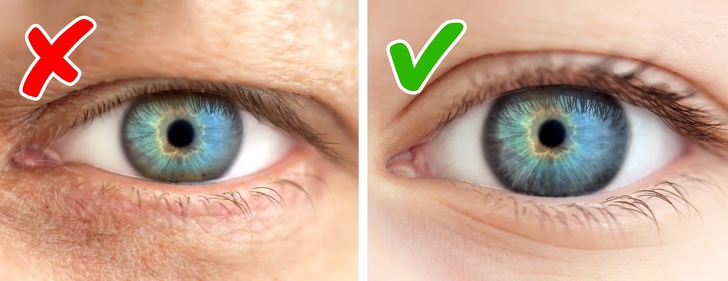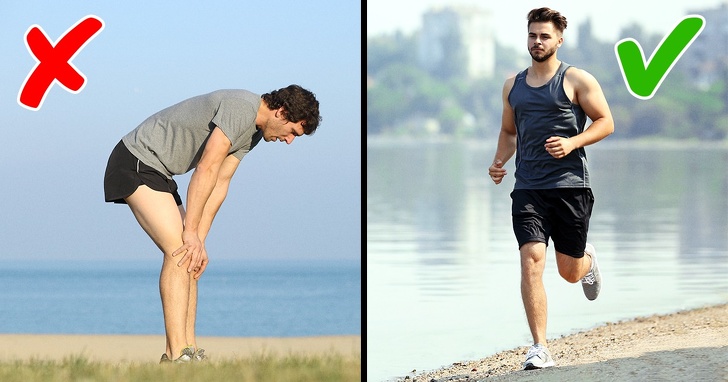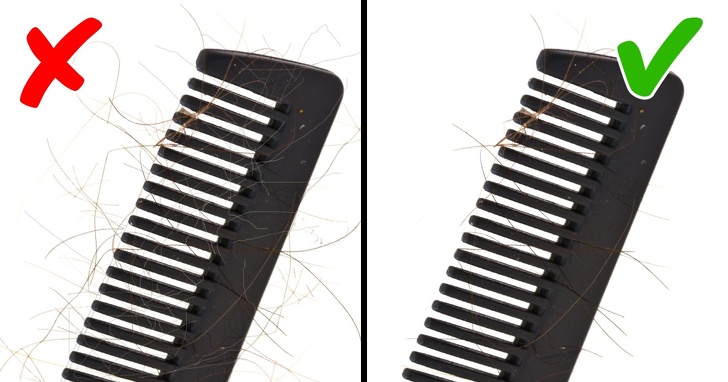Scientists believe that the rate at which you age depends mostly on external factors and not on genetics. Only 20% of the impact is determined by heredity. According to recent research, some people age 3 times quicker while for others, one biological year is equal to 16.5 calendar months. A person’s biological age has a great effect on how they look, which is why people of the same age can look younger or older than they really are.
We prepared a list of signs that can show that your body is aging too quickly.
1. Extremely dry and flaky skin

Signs of skin aging usually appear after the age of 25, but because of adverse factors, they can appear earlier. With time, such signs become more distinct. A high speed of age-related skin changes in comparison with people of the same age can be a sign of premature aging.
If your skin is constantly dry with visible flaking, pigmentation spots, and wrinkles, this problem is likely to be connected with issues with the endocrine system.
In addition to hormonal problems, the state of the skin can be negatively affected by an unhealthy lifestyle. An unbalanced diet, neglect of sunscreen, high levels of stress — all these factors slow down the skin renewal process.
How to prevent: make sure that your diet is as balanced as possible with a sufficient content of vegetables, leafy greens, berries, and foods that are rich in unsaturated fats, such as nuts, vegetable oils, and seeds.
2. Superior sulcus hollowing

The thin skin around the eyelids is most susceptible to the negative influence of various kinds of harmful external and internal factors, such as fatigue, lack of sleep, stress, and UV rays. That’s why the first signs of aging often appear in this area.
Superior sulcus hollowing and so-called “eye bags” make you look significantly older. The constant work of the muscles around the eyes leads to a rapid loss of skin elasticity. As it sags and stretches, new small empty spaces become filled with fat.
This problem is unavoidable for elderly people, but if the changes begin to appear before the age of 40, this can indicate problems in the functioning of the internal organs and an accelerated rate of body aging. It should also be taken into account that sometimes a person has superior sulcus hollowing because of the anatomy of the face and they differ from those caused by age-related changes.
How to prevent: try to get enough sleep, avoid salty food, drink more water, and don’t forget to take care of the skin around the eyes every day.
3. Menstrual cycle disorders

An irregular menstrual cycle can be a sign of early menopause. It’s considered normal if a woman begins menopause at the age of 46-54. If this happens before you’re 40 years old, this may be a sign of premature aging of the internal organs.
The symptoms of early menopause include insomnia, fever, chills, seizures, and constant mood swings.
How to prevent: visit your gynecologist on a regular basis, promptly detect and treat inflammation of the internal organs, and don’t neglect the intake of vitamins. Most often, the onset of early menopause is associated with pathologies or surgical intervention in the female internal organs. When you notice the first warning signs, it’s better to consult a doctor.
4. Physical weakness

If climbing the stairs, walking, or any other daily activity comes with great difficulty, it can happen not only because you’re out of shape and neglect exercising on a regular basis, but it can also be a sign of a difference between your “official” and biological age.
After 40 years, the muscle volume begins to decrease. These are natural processes that can be slowed down by exercising regularly and can be accelerated by neglecting physical activity.
How to prevent: choose activities that you like so you don’t have to force yourself every time. It can be yoga, dancing, riding a bicycle, or anything else you want to do. In everyday life always try to be active: instead of using the elevator, climb the stairs or choose to walk instead of taking a bus.
5. Noticeable hairloss

Loss of 50-125 hairs a day is considered to be normal for a healthy adult. But if you begin to notice more and more hairs on your brush and that the parting in the middle of your head becomes wider, then you should consult a doctor.
In most cases, signs of early baldness appear because of hormonal issues. With rapid aging, noticeable hair loss can also be observed in other parts of the body.
How to prevent: choose the right hygiene products, try to enrich the diet with products rich in omega-3 fatty acids, and protect your hair from the sun.
6. Sleep disorders

Sleep disorders alone aren’t related to aging, but they’re the result of the influence of factors connected with aging.
People who are older than 60 years old may experience some common physiological changes when it comes to their sleep cycle. They may have trouble sleeping through the night and they may start to wake up earlier. This happens due to an age-related increase in the level of cortisol, which can cause feelings of anxiety during sleep. Signs of accelerated aging in the body can include sleep problems.
How to prevent: yoga or swimming can help deal with stress and reading a book before going to sleep is more helpful than scrolling through your phone or watching TV.
When early signs of aging occur, you should immediately consult a doctor. Preventive measures can only delay the consequences of the problem without really resolving it. Please, keep in mind that self-medication doesn’t work in most cases.











